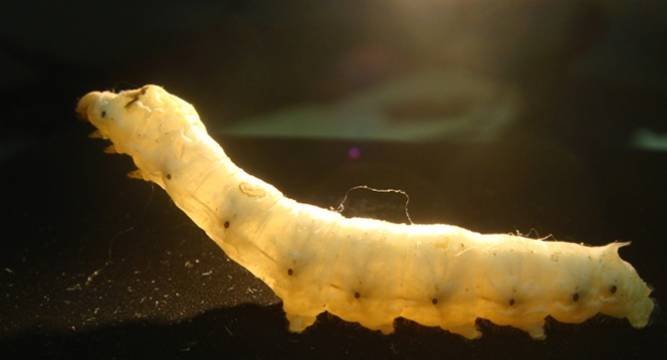New Delhi, Feb 15: In a first, the government has initiated field trials of transgenic silkworms that are not only resistant to diseases but will also help boost overall production of silk.
Multi-locational field trails of transgenic silkworm have been initiated in “contained facilities” after the approval of Review Committee of Genetic Manipulation (RCGM) at four locations.
The trials are being conducted at Central Sericultural Research and Training Institute (CSR&TI), Mysore, CSR&TI, Berhampore, CSR&TI, Pampore and Andhra Pradesh State Sericulture Research and Development Institute (APSSRDI), Hindupur.
The loss of life of silkworms due to disease prompted the research group of Centre for DNA Fingerprinting and Diagnostics (CDFD), Hyderabad and Andhra Pradesh State Sericultural Research and Development Institute (APSSRDI), Hindupur to develop transgenic silkworms resistant to BmNPV virus. This type of silkworms can be reared by the farming community through the year.
A transgenic animal is one that carries a foreign gene that has been deliberately inserted into its genome.
“This is for the first time that the RCGM has given permission to conduct field trials on any animal or insect,” Mohammed Aslam, a senior scientist and adviser to the Department of Biotechnology under the Ministry of Science and Technology (S&T) said.
He said the Indian silkworms have resistance to fight diseases. Silkworms from China and Japan have the capacity to produce good quality silk but, if introduced in the tropical climate of India, they succumb to diseases as their resistance level is low.
Of late, Indian Agriculture has seen significant improvement in the production of bivoltine silk. However, the rearing of bivoltine silkworm hybrids is not possible through the year, leading to dependence on inferior cross-bred hybrids especially during adverse climatic conditions (March-August).
During this period, there is a crop loss to the extent of 30-40 per cent due to BmNPV infection.
In the past, scientists tried to cross-breed Indian and Chinese worms, but the success rate was just around 50-60 per cent, Aslam added.
“This crucial factor prompted the research group of Centre for DNA Fingerprinting and Diagnostics (CDFD), Hyderabad and Andhra Pradesh State Sericultural Research and Development Institute (APSSRDI), Hindupur to develop transgenic silkworms resistant to BmNPV which can be reared by the farming community throughout the year.
“With the introduction of transgenic silkworm hybrids, apart from the resistance in the hybrid, the quality parameters with reference to silk grade will improve as compared to the present commercial hybrids.
“Based on the series of trials conducted at lab level, it was observed that the transgenic silkworm hybrids once introduced at commercial level will be a boon to the sericulturists,” Aslam said.
Biotechnology Industry Research Assistance Council (BIRAC), the funding agency of this project under CRS scheme, —a PSU of Department of Biotechnology under the Ministry of Science and Technology —has already released the grant to all the implementing institutions.
Asia is the main producer of silk in the world and contributing over 95 per cent of the global output. Though there are over 40 countries on the world map of silk, bulk of it is produced in China and India, followed by Japan, Brazil and Korea. China is the leading supplier of silk to the world.
India is the second largest producer of silk and accounts for nearly 18 per cent of global raw silk production.




























